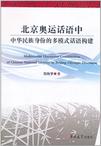北京奥运话语中中华民族身份的多模式话语构建
出版时间:2011-5 出版社:吉林大学出版社 作者:郑海翠 页数:271
内容概要
《北京奥运话语中中华民族身份的多模式话语构建》在理论构想的基础上,选择北京申办和筹备2008年奥运会这一历史事件作为研究面,分析了在全球化进程中中华民族身份的多模式话语构建。
作者简介
郑海翠。女,1971年生,内蒙古人,蒙古族。2003年毕业于苏州大学外国语学院,获英语语言文学硕士学位。2008年毕业于南开大学外国语学院,获英语语言文学博士学位。现为内蒙古大学外国语学院教师。副教授。具体研究方向为(批评)话语分析、社会语言学、语用学等。近年来,在国际话语核心期刊DiscourseStudies、《外语学刊》、《中国社会语言学》、《中国英语教学》等学术期刊发表过学术论文。参与过国家社科基金项目的研究。
书籍目录
Chapter 1 Introduction1.1 Contemporary communication1.2 Sports and national identity1.3 Beijing Olympic Games and Chinese national identity1.4 The structure of the thesisChapter 2 Nation, Nationalism and National Identity2.1 Identity studies: from essentialism to constmctionism2.2 Related concepts to national identity2.2.1 Different approaches to nation2.2.1.1 Nation as a historical development2.2.1.2 Nation as an imagined community2.2.1.3 Nation as a cognitive category2.2.2 State and nation - state2, 2.3 Nationalism2.2.4 Definition of national identity2.3 Assumptions about national identity2.3.1 National identity as social identity2.3.2 National identity as collective identity2.3.3 National identity: An interactive construct2.3.4 Multi - dimensional representation of nationalidentity2.3.5 Multiple empirical referents to national identity2.4 The discursive construction of national identity2.5 Current researches on Chinese national identity2.6 Towards multimodal discursive construction of nationalidentityChapter 3 Multirnodality Research: A New Frontier for Multi -semioMeaning Making3.1 Studies of semiotic meaning - making mechanism3.1.1 Founding fathers of semiotics revisited3.1.1. I Saussure‘ s linguicentric semiology3.1.1.2 Peirce’ s semiotics: logic - oriented theoryabout signs3.1.2 Social semiotics3.1.2.1 Social interpretation of meaning3.1.2.2 Multiplicity of meaning - making resources3.1.2.3 Social theory of signs3.1.2.4 Semiosis and the social3.1.3 Summary3.2 Critical discourse analysis: discourse as social practice3.2.1 Fairclough: The distinction between Discourse (s)and discourse (s)3.2.2 Wodak: discourse as a macro -topic concept anda particular occurrence3.2.3 Van Dijk: a multidisciplinary notion of discourse3.2.4 Kress and Van Leeuwen: discourse as the semiosicplane in semiosis3.2.5 Summary3.3 Critical social semiotics3.3.1 Multimodal theory of communication3.3.2 Modes and media3.3.3 Multimodal text3.3.4 Multiple articulation of meaning3.3.5 Reflections on Kress and Van Leeuwen‘ smultimodal theoryChapter 4 Proposed Frameworks for Multimodal Discourse Analysis4.1 Multimodal realization of discourse4.1.1 Mode identification4.1.2 Mode involvement4.1.3 Mode interaction4.1.4 Strategy and multimodal discourse as socialpractice4.2 A three - stage meaning - making model4.2.1 Cultivation4.2.2 Realization4.2.3 Distribution4.2.4 Relationship between the three stagesChapter 5 Multimodal Discursive Construction of ChineseNational Identity5.1 A plethora of multi - semiotic resources as data5.2 Multimodal realization of Chinese national identity5.2.1 Modes, sub - modes and media deployed5.2.1.1 Language5.2.1.2 Sub - modes of language5.2.1.3 Image5.2. 1.4 Music5.2.1.5 Dress5.2.1.6 Color5.2.1.7 Number5.2.1.8 Media5.2.2 Mode involvement5.2.3 Intersemiosis5.2.3.1 The bidding logo and its caption5.2.3.2 Intersemiosis in people’ s signatures5.2.3.3 A middle school student‘ s paper cranes and verbal hope5.2.3.4 Overseas Chinese’ s Wish Cup and open letter5.2.3.5 Overseas Chinese displaying “Olympic Dragon” Scroll5.2.3.6 Interaction between semiotic modes in presentation5.2.3.7 Fuwa: A kaleidoscope of the Chineseculture5.2.4 Strategy5.2.5 Summary5.3 The Beijing Olympic emblem: An illustration of three - stage multimodal meaning making5.3.1 Cultivation: digging Chinese culture5.3.1.1 Design expectation: China aiming to be unique5.3.1.2 Combining Chinese civilization with Olympic philosophy in the design5.3.1.3 The design - modifying: A Chinese culture learning process5.3.2 Realization: A witness of the Chinese nation‘ s commitment5.3.2.1 The visual image of the emblem: a multimodalconstruct5.3.2.2 Multimodal realization of the emblem seal5.3.2.3 Unveiling: an aggregate of signs5.3.3 Distribution: meaning enhanced and enriched5.3.3.1 Rogge giving approval in a Chinese way5.3.3.2 International Comments5.3.3.3 Chinese official interpretation5.3.3.4 Chinese experts’ evaluations5.3.3.5 Other Chinese people‘ s understanding5.3.3.6 Summary5.3.4 Chinese Seal -Dancing Beijing and Chinese nationalidentity5.4 Discussion5.4.1 Chinese national identity as a multimodal discursive construct5.4.2 Multi - dimensional representation of Chinese national identity5.4.3 Multiple empirical referents to Chinese national identityChapter 6 ConclusionBibliographyAppendix: Data source
图书封面
评论、评分、阅读与下载
用户评论 (总计0条)
相关图书
- 共同犯罪立法模式比较研究
- 应用文体比较研究
- 温故(合订本伍辑)
- 搭地铁玩台北
- 高职院校科研管理研究
- 新编教育学
- 文化边缘
- 全国体育院校思想政治理论课与思想政治教育研究
- 知识管理战略的影响因素及实施后果研究
- 地级城市旅游竞争力研究
- 理工科高校职业道德教育研究/研究系列/公民教育丛书
- 近现代中国历史重大事件中的思想政治教育研究
- 易经卦爻解析
- 现代人际交往的润滑剂
- 当代西方社会思潮与青年教育
- 普通话训练教程
- 竞争性战略联盟的合作效应研究
- 房地产市场营销组合与案例分析
- 走出道德困境
- 徐特立研究文集
- 非关税壁垒的演变及其贸易保护效应
- 中国企业重组案例(第8辑)
- 转型国家经济评论
- 财政分权与中国基本公共服务供给研究
- 东北地区金融发展实证研究
